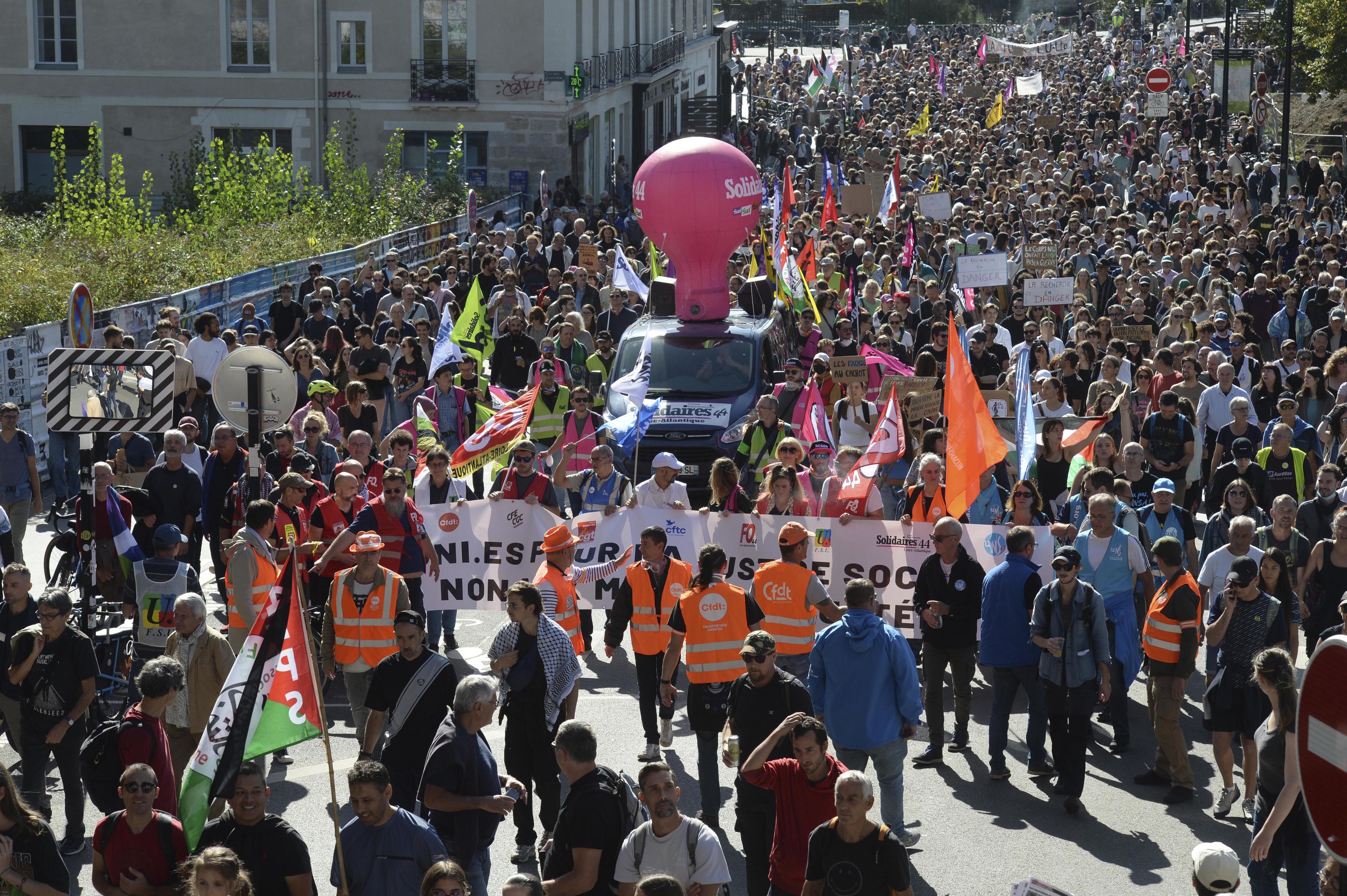France is facing chaos this Thursday with a general strike, as its third Prime Minister in a year, the Macronist Sébastien Lecornu, has not been able to form a new Government coalition. The massive strike has been called by eight major unions in protest against the austerity budget that led to the downfall of centrist François Bayrou as Prime Minister, after losing a vote of confidence in the National Assembly.
It is estimated that more than 400,000 people will join the protests on Thursday, with 250 demonstrations scheduled across the country and general strikes in sectors such as transportation, energy, and education. The popular mobilization will be the largest since the protests against pension reform and likely much larger than the one on September 10, called by the movement "Bloquons tout!" (Let's block everything!), which resulted in over five hundred arrests.
Over 80,000 police officers have been deployed again in anticipation of violence. Outgoing Interior Minister Bruno Retailleau has warned of the "risk of public disorder due to the presence of ultra-left groups that will try to infiltrate the marches." President Emmanuel Macron, who leaves for New York on Friday to participate in the UN General Assembly and promote the recognition of the State of Palestine, has remained almost silent in the face of the explosive political, economic, and social situation in the country.
One of the largest concentrations on Thursday is expected between the Place de la République and the Bastille in Paris. Police will deploy large forces in the area of the Arc de Triomphe, where the most significant disturbances occurred in 2018 during the protests of the yellow vests against fuel taxes.
The strikes could severely affect public transportation, from the Paris metro to high-speed trains. Railway stations and airports will be other hotspots, with a possible impact on air traffic. Dozens of schools and high schools have announced temporary closures, and there is even expected to be uneven participation in banks, shops, and even pharmacies.
The social mobilization has been largely supported by left-wing forces, especially by Jean-Luc Mélenchon's La France Insoumise. Meanwhile, the leader of the Socialist Party, Olivier Faure, held a meeting on Wednesday with the new Prime Minister, Sébastien Lecornu, and warned upon leaving: "On the eve of a major social mobilization, the message we have conveyed is that the French want to see a change in their lives."
The Socialist Party has made the so-called "Zucman tax" (promoted by economist Gabriel Zucman) its peculiar social flag, aiming to impose a 2% tax on fortunes over 100 million euros, a measure supported by the majority of French people in polls and already debated in the Senate.
Meanwhile, the unions have condemned as "brutal for workers" the budget anticipated in July by Bayrou and are not satisfied with Lecornu's announcement renouncing the elimination of two public holidays. The budget, with social cuts estimated at 43.8 billion euros, foresaw a one-year freeze on pensions and social benefits, the dismissal of thousands of civil servants, and a reduction in healthcare spending.
The social mobilization comes against a backdrop of great economic uncertainty, precisely due to the political instability in the country. France's risk premium, with the third-highest public debt in the eurozone (114.1% of GDP), surpassed Italy's last week. Credit rating agency Fitch subsequently downgraded France's debt rating from A- to A+. The Bank of France slightly revised upwards its GDP growth forecast to 0.7% for that year but lowered its expectations for 2026 and 2027, with presidential elections on the horizon.
